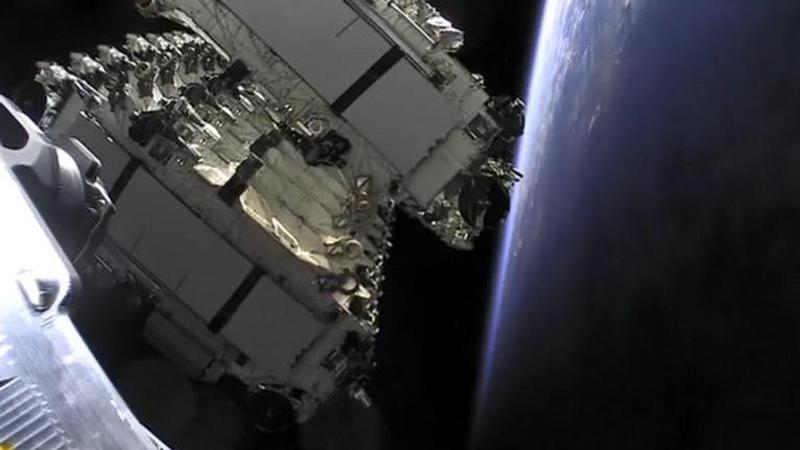Published 09:33 IST, February 10th 2022
NASA underscores concerns over SpaceX Starlink 'Gen-2' constellation in letter to FCC
NASA raised concerns over Space X Starlink Gen-2 constellation, saying that it could lead to "significant increase" in potential collisions in low Earth orbit

The National Space and Aeronautics Administration (NASA) on Wednesday raised concerns over the SpaceX Starlink second-generation constellation, saying that it could lead to a "significant increase" in potential collisions in low Earth orbit. With 30,000 satellites, the SpaceX Starlink could also interfere with the space agency's launches and scientific activities, NASA said in a five-page letter written to the Federal Communications Commission (FCC) on February 8. The letter was submitted to the FCC on behalf of NASA by the National Telecommunications and Information Administration.
The five-page letter, signed by Samantha Fonder, NASA’s representative to the Commercial Space Transportation Interagency Group, was sent along with another letter to the National Science Foundation, which also expressed concerns over the security concerns and long-term sustainability of the space environment. NASA questioned the expansion of SpaceX's 'automated collision avoidance system' in Gen-2 Starlink satellites. The letter further sought answers to the inherent risks of debris-generating collisions that arose with the increase of the magnitude of spaceflights in Earth's lower orbits.
"With the increase in large constellation proposals to the FCC, NASA has concerns with the potential for a significant increase in the frequency of conjunction events and possible impacts to NASA’s science and human spaceflight missions. NASA wants to ensure that the deployment of the Starlink Gen 2 system is conducted prudently, in a manner that supports spaceflight safety and the long-term sustainability of the space environment," the five-page letter, signed by Samantha Fonder, NASA’s representative to the Commercial Space Transportation Interagency Group, said, as quoted by Space News.
"An increase of this magnitude into these confined altitude bands inherently brings additional risk of debris-generating collision events based on the number of objects alone,” the agency noted. “NASA anticipates current and planned science missions, as well as human space flight operations, will see an increase in conjunctions," the letter added.
Potential collision of Starlink with larger spacecraft and radio frequency interference
NASA recommended SpaceX Starlink to conduct an analysis demonstrating the auto-maneuver capability to ascertain sufficient scalability to the entire constellation size. In addition, the agency also asked Elon Musk's private space exploration company to account for challenges in flying lower altitudes during greater solar activity. Furthermore, NASA also demanded reliable data to support SpaceX's "zero risk" claims in link with the Starlink satellite's maneuverability.
“With the potential for multiple constellations with thousands and tens of thousands of spacecraft, it is not recommended to assume propulsion systems, ground detection systems, and software are 100% reliable, or that manual operations (if any) are 100% error-free,” NASA highlighted in its letter.
Lastly, NASA recommended SpaceX must run a risk-analysis of events to ensure avoiding potential collisions. The space agency also voiced concerns over Starlink Gen-2 systems interfering with NASA's Earth science satellites by creating reflections of the sunlight. The constellation could double the number of Hubble Space Telescope images and reduce asteroid survey effectiveness by "rendering portions of images unusable." NASA also noted that Starlink operations could leave potential impacts on radio frequency interference (RFI). Starlink radio bands overlap or are adjacent to NASA's Tracking and Data Relay Satellite System (TDRSS), thus, maximising the negative effects on smooth functioning, the space agency said. However, SpaceX has refused to comment on the said letter.
(Image: @SpaceXStarlink/Twitter)
Updated 09:33 IST, February 10th 2022




